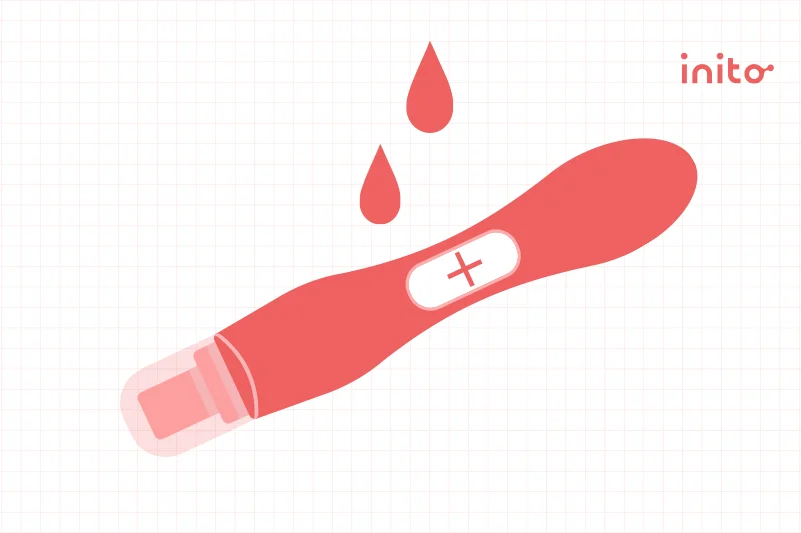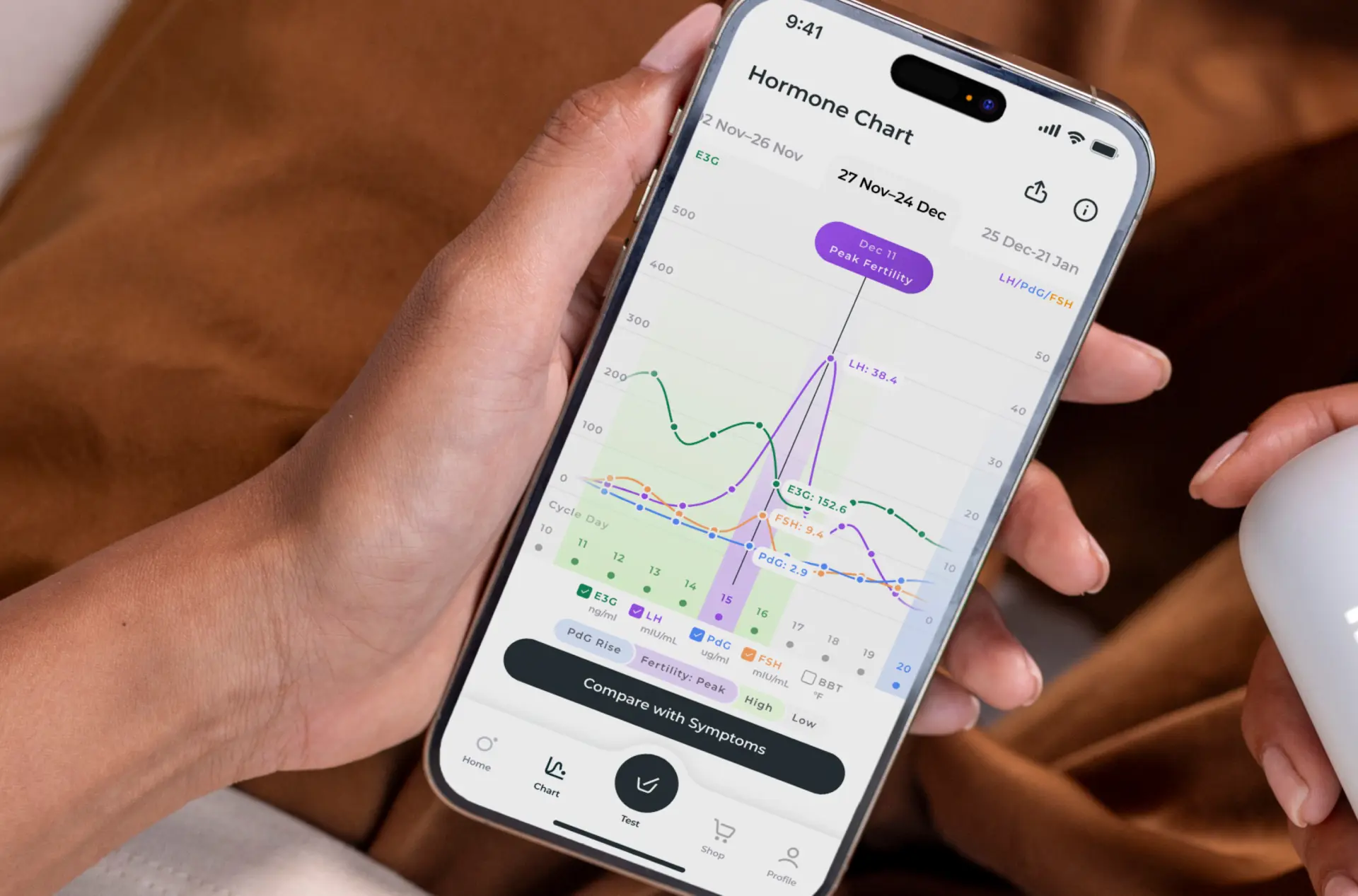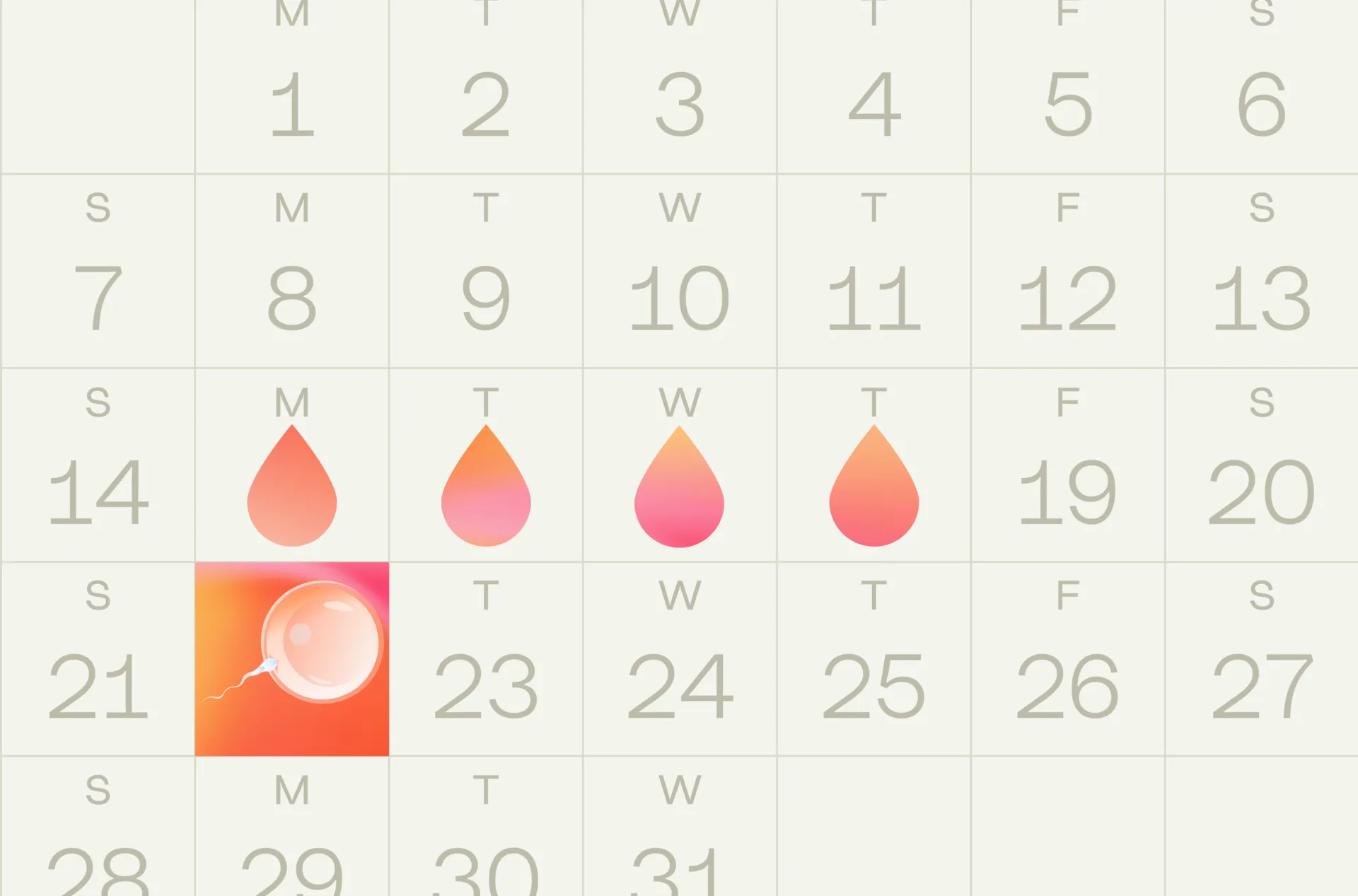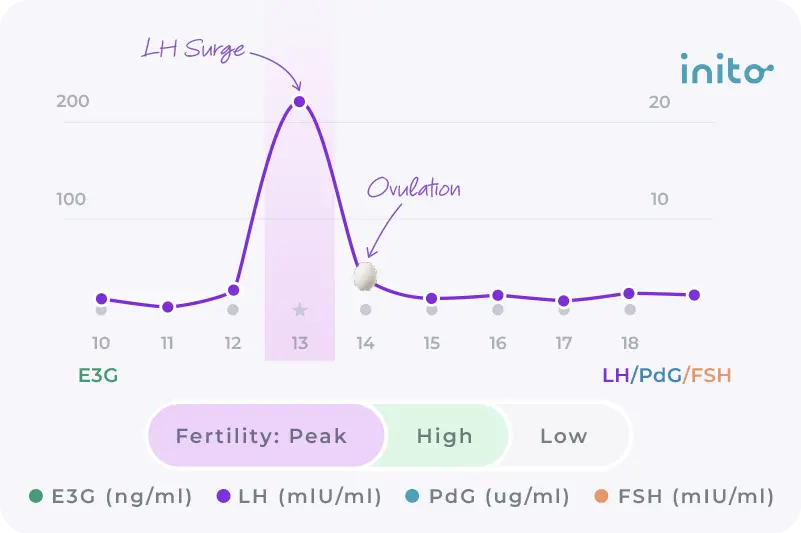Content table
Missing a period is the hallmark sign of early pregnancy.
So when bleeding pops up during pregnancy, it can raise a lot of questions. One being, “Can you have a period and be pregnant?”
And the short answer is no.
When you’re pregnant, your periods go on hiatus.
That said, every bleeding is not your period. You can bleed during pregnancy for several reasons. If the bleeding lines up with your menstrual cycle, it may seem like your period. But really, it’s not.
Bleeding during pregnancy can be serious and on occasion, not. Even if bleeding is common, ACOG recommends consulting your OB-GYN whenever you experience a bleed.
In this article, we’ll break down the science of why periods aren’t possible during pregnancy. We’ll then cover the most common causes of vaginal bleeding during pregnancy, and when to see your doctor.
Key Takeaways
- You can’t get your period while pregnant.
- Every bleeding is not your period.
- Light bleeding during the first trimester is common and can be due to various reasons.
- Implantation bleeding occurs when the fertilized egg attaches to the uterine wall. It occurs right before you’d expect your next period.
- Other causes of bleeding during pregnancy include miscarriage, ectopic pregnancy, placenta problems, or infection.
- If you experience bleeding while pregnant, it’s best to check with your healthcare provider.
- Any bleeding accompanied by severe cramping or pelvic pain deserves prompt medical attention.
What is a Period?
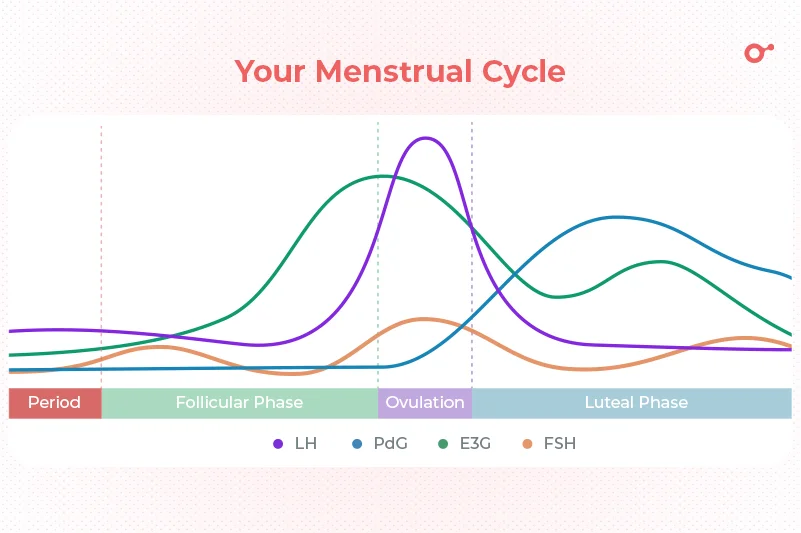
Menstruation (aka ‘your period’) is the shedding of your uterine lining during your monthly cycle.
During the first half of your menstrual cycle, estrogen rises. This causes the endometrium to start growing to prepare for a potential pregnancy.
Midcycle, one of your ovaries releases an egg. The empty follicle that released the egg then forms the corpus luteum. This structure begins producing progesterone to support the pregnancy.
If a sperm fertilizes the egg, conception may occur. The corpus luteum then continues producing progesterone to nourish the womb.
But if the egg isn’t fertilized, the corpus luteum shrinks, and progesterone drops. This causes the uterine lining to slough off, which shows up as your period.
When pregnant, hormones tell your body to put menstruation on hold. This prevents the uterine lining from shedding, so the embryo can keep growing.
So, you can’t get your period while pregnant—you can either get pregnant or have a period, not both.
Yet, vaginal bleeding is fairly common in early pregnancy. Let’s see why.
Two-Week Wait Bleeding: What Does it Mean?
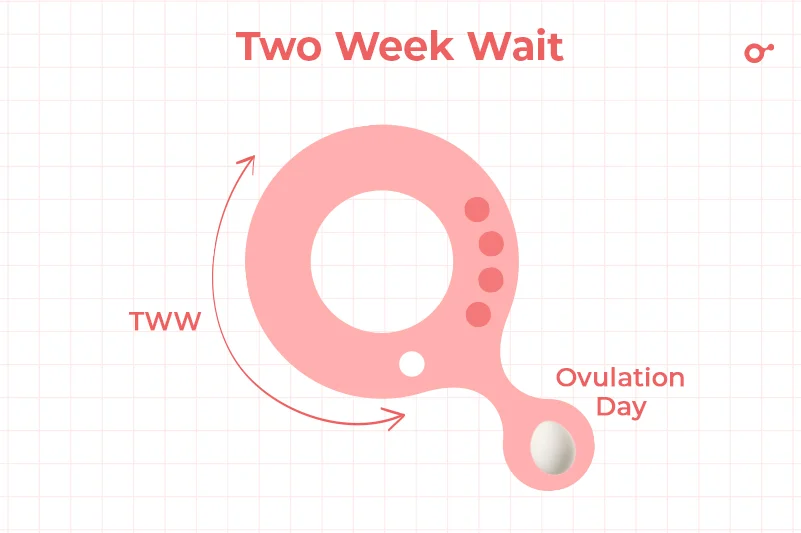
If you’re trying to conceive, you’re likely aware of the Two-Week Wait (TWW). It’s that nail-biting time between ovulation and a missed period.
So when bleeding shows up during the TWW, you may think your period has arrived. When really, it could be implantation bleeding.
What is Implantation Bleeding?
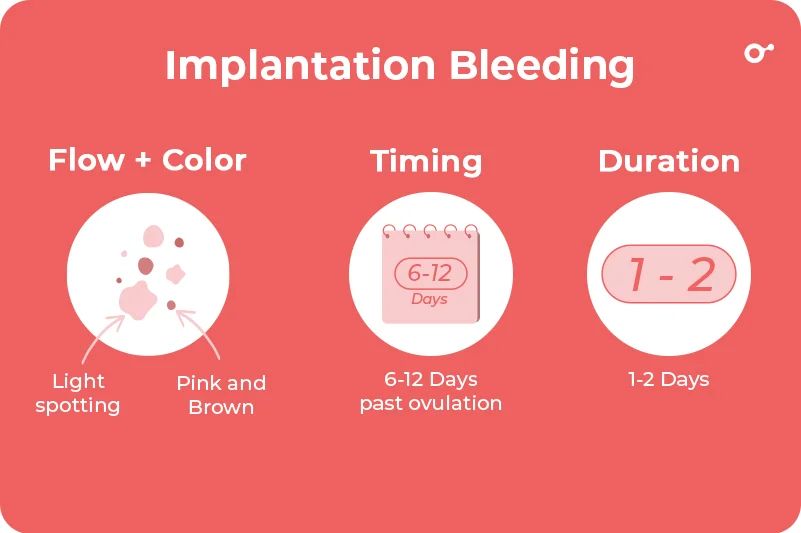
Implantation bleeding happens when the fertilized egg attaches to the uterine wall. When the egg attaches, it can cause blood vessels to burst. This may lead to some light bleeding or spotting.
Implantation bleeding occurs roughly 10-14 days after conception, or right before you’d expect your next period. It happens for around 15% of pregnant women.
Because of the timing, it’s easy to mistake implantation bleeding for the start of your period. But there are a few key differences between implantation bleeding and period.
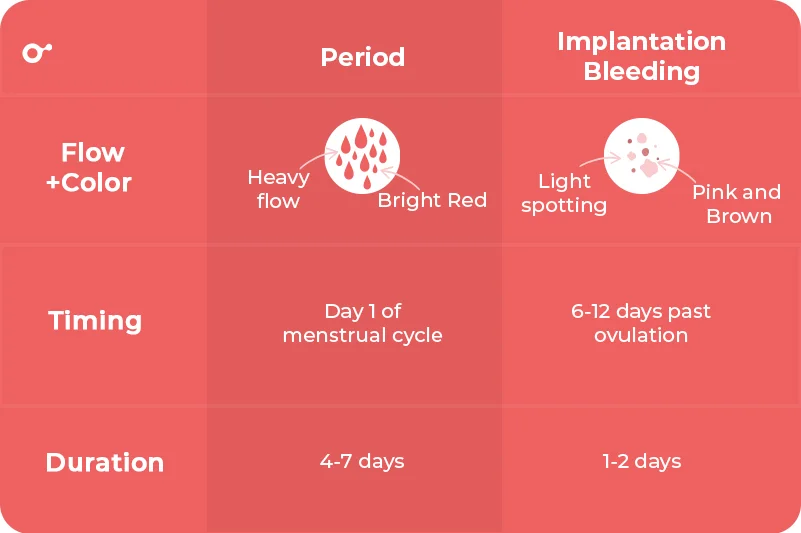
For starters, implantation bleeding is much lighter than your period. It also only lasts for around one to three days. And unlike your period flow, which tends to get heavier, implantation spotting remains light.
So, if you experience any heavy bleeding during the two-week wait, it’s probably your period.
The color is also different. While period blood tends to be bright red, implantation bleeding is usually light pink or brown.
While implantation bleeding is common, it’s not the only reason you might bleed while you’re pregnant. Let’s explore the others.
What is First Trimester Bleeding?
As the name suggests, first-trimester bleeding occurs during the first three months of pregnancy.
While any bleeding during pregnancy can be troubling, it’s common in the first trimester. In fact, one in four pregnancies experiences first-trimester bleeding.
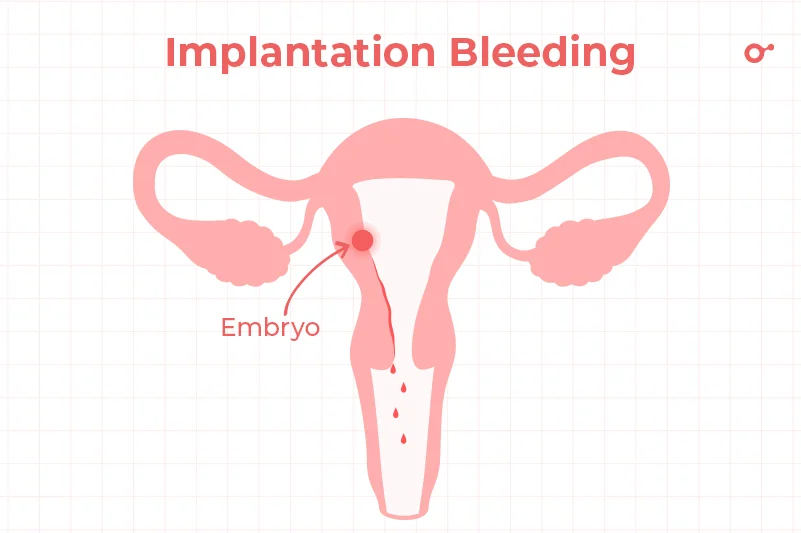
Bleeding in the first trimester tends to be light and lasts only a few days. Some cases of first trimester bleeding are due to implantation. Other times it may be due to cervical polyps. These are small growths on the cervix that can cause irritation and spotting.
Many people with first-trimester bleeding go on to have successful pregnancies. Bleeding in the second and third trimesters is less common and could be a warning that something’s amiss.
Other Causes of Bleeding During Early Pregnancy
Bleeding can occur during pregnancy for many reasons. Some are harmless, while others need medical attention. Either way, speak to your OB the moment you observe bleeding during pregnancy.
Here are some other reasons for bleeding during pregnancy:
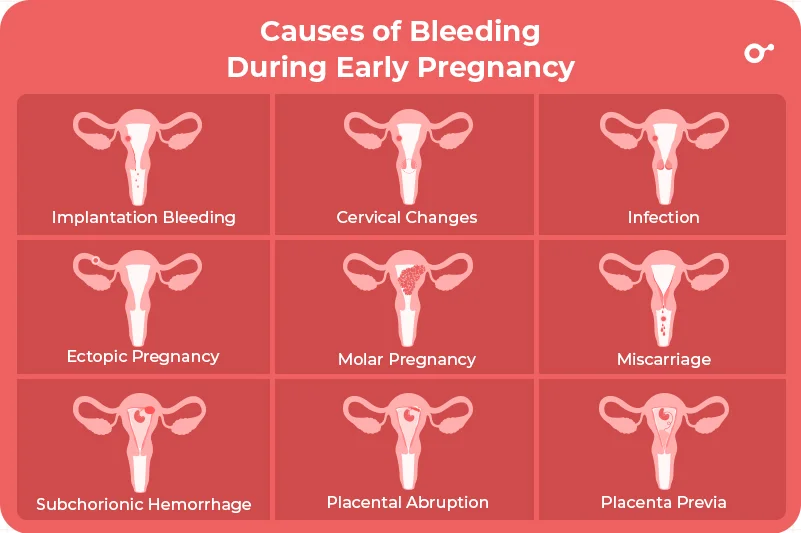
Cervical changes
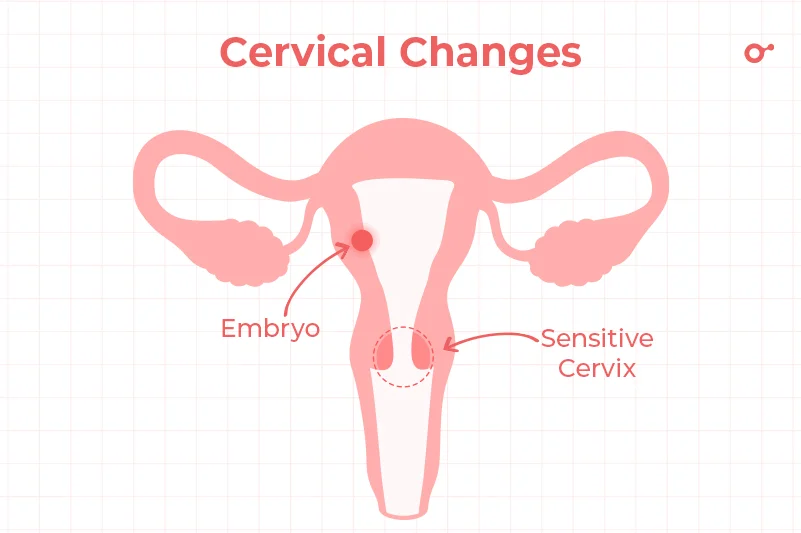
When you’re pregnant, your cervix and vaginal tissues are more sensitive. This is because more blood vessels develop in these areas during pregnancy. For some, this may result in some light spotting after sex.
Infection
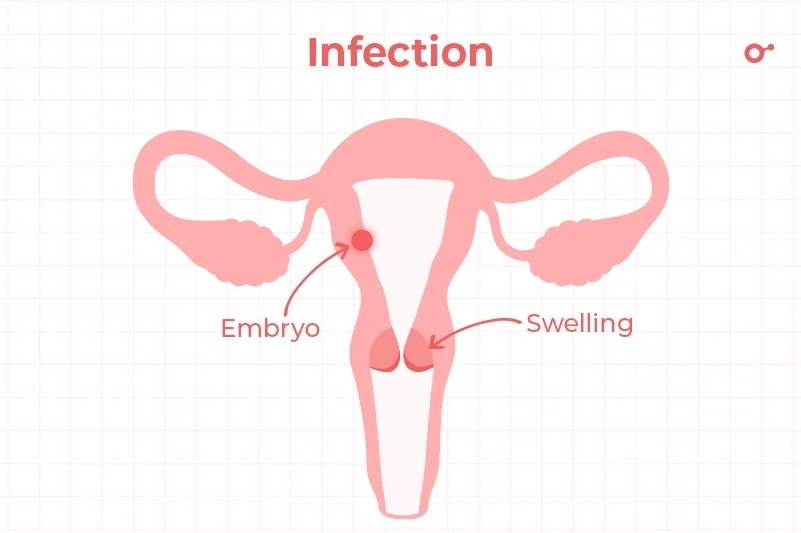
Many types of infections can cause vaginal bleeding. These could include a Urinary Tract Infection (UTI), yeast infection, bacterial vaginitis, or STI.
Besides bleeding, other signs of infection include:
- Strange odors
- Vaginal itching
- Burning during urination
- Changes in vaginal discharge
- Pain during sex
If any of these symptoms pop up, contact your doctor.
Ectopic pregnancy
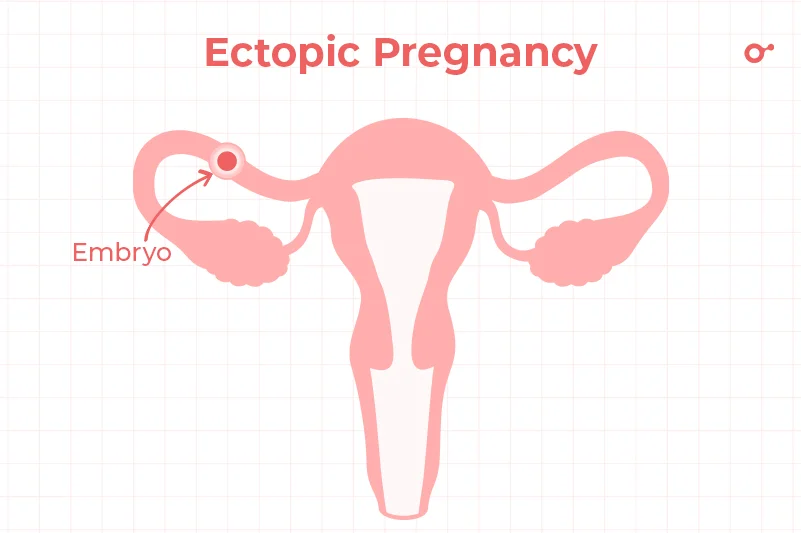
This is when the fertilized egg implants somewhere outside the uterus. It typically happens in a fallopian tube. Ectopic pregnancies are rare and develop only in around 1-2% of all US pregnancies. That said, they can be a life-threatening emergency if left untreated.
Symptoms of ectopic pregnancy include:
- Dark, heavy vaginal bleeding
- Pelvic or abdominal pain
- Shoulder pain
- Dizziness
- Fainting
If you experience any of these symptoms, seek medical attention right away.
Molar pregnancy
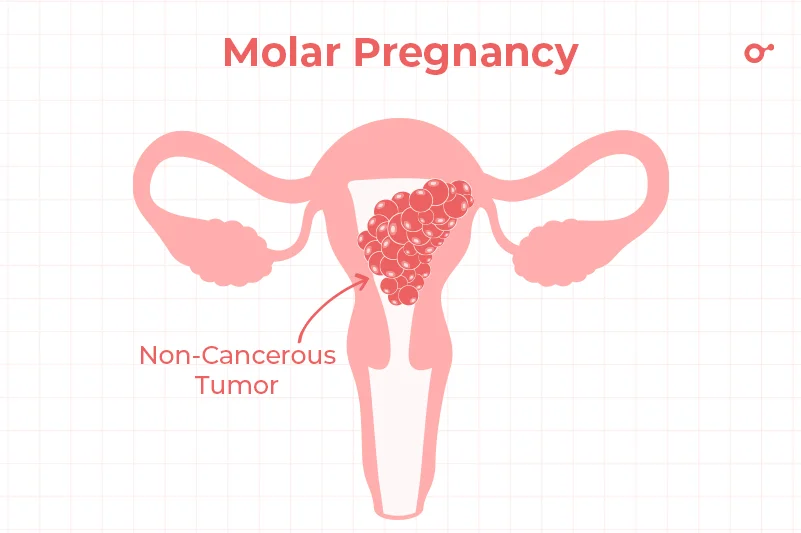
Molar pregnancies occur when an egg and sperm don’t join correctly at fertilization. This causes a non-cancerous tumor to form instead of the placenta. Without a placenta, the embryo cannot develop properly.
Signs of a molar pregnancy include:
- Bright red or dark brown bleeding
- Nausea or vomiting
- Pelvic pain or pressure
- Passing grape-like cysts from your vagina
Miscarriage
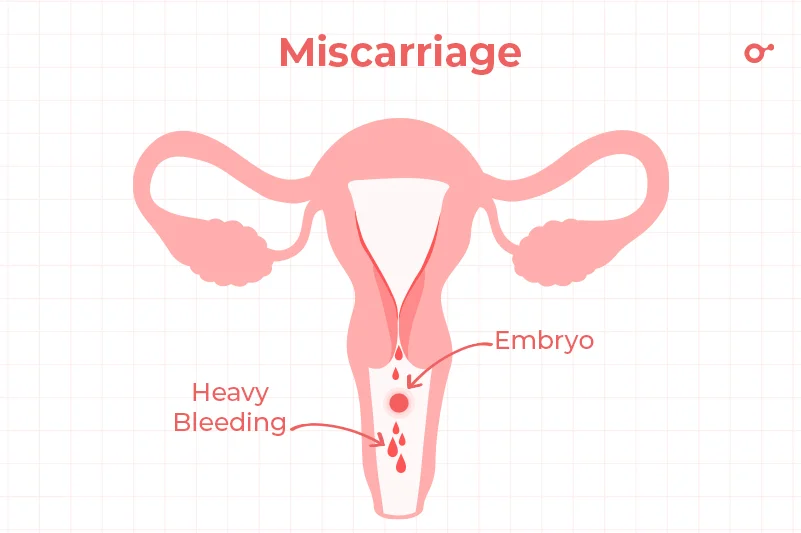
Sadly, around 10% of all known pregnancies result in miscarriage. Common symptoms include heavy bleeding, cramping, abdominal pain, and passing blood clots or tissue. If you suspect you’re having an early pregnancy loss, call your OB-GYN.
Subchorionic hemorrhage
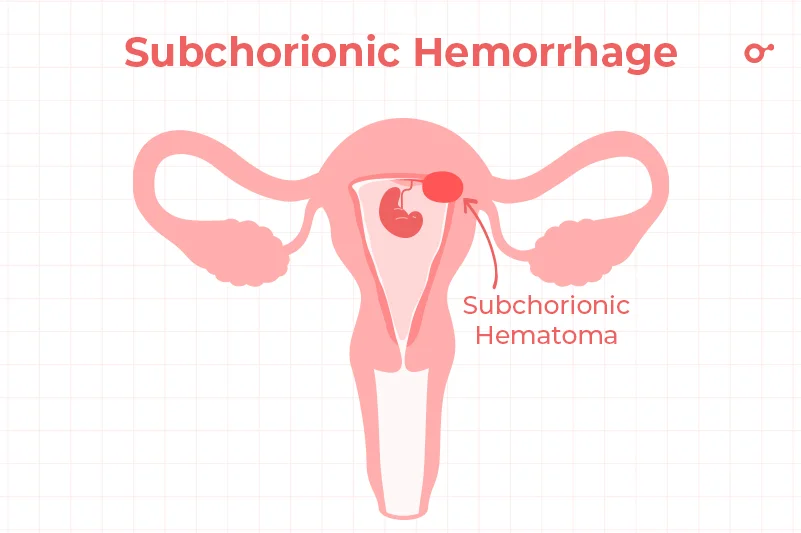
This is when the membrane around the embryo partially detaches from the uterine wall. It’s also known as a subchorionic hematoma. This condition causes blood to pool between the endometrium and the membrane, leading to bleeding.
Subchorionic hematoma is the most common cause of bleeding between 10 to 20 weeks of pregnancy. It’s linked with an increased risk of pregnancy loss. That said, most women with this condition go on to deliver healthy babies.
Placental abruption
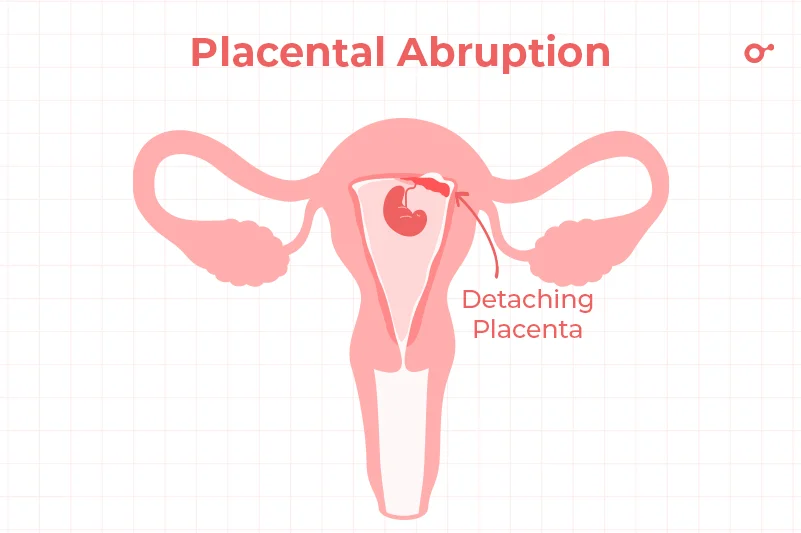
This is when the placenta detaches from the uterine wall. While rare, this condition requires prompt medical attention. Symptoms include bright red bleeding, contractions, and abdominal or back pain.
Placenta previa
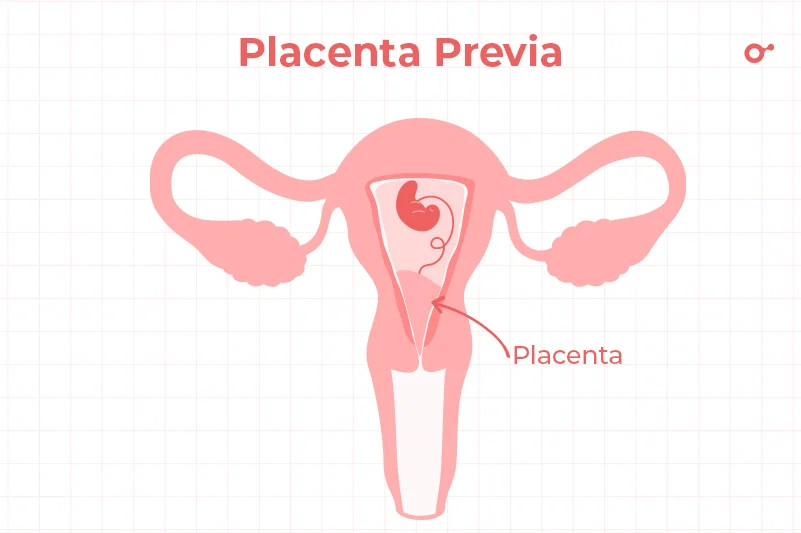
Placenta previa is when the placenta blocks your baby’s exit route out of the cervix. This happens during the second half of pregnancy and can lead to bright red vaginal bleeding. Sometimes placenta previa resolves on its own as the uterus stretches. Other times, cesarean birth is needed.
Period vs. Pregnancy Symptoms: How to Tell the Difference?
Pregnancy and Premenstrual Syndrome (PMS) can cause a lot of the same symptoms, including:
- Bleeding
- Cramping
- Sore breasts
- Moodiness
- Backaches
No wonder people confuse pregnancy bleeding with their period! Yet, there is a telltale sign to tell the difference: progesterone.
Progesterone levels are low during your period. This is because if the egg isn’t fertilized after ovulation, the corpus luteum shrivels up. This structure produces progesterone during your luteal phase. So when it shrinks, your progesterone levels do too.
But, if fertilization occurs, progesterone levels keep rising. And they continue to rise throughout your pregnancy.
When to See Your Doctor
It’s wise to speak with your doctor when you’re having any type of bleeding during pregnancy. They may simply calm your fears or recommend further testing.
Light bleeding during early pregnancy is common and often harmless. But if there are other symptoms accompanying it or the bleeding continues for a longer time, it could suggest a serious problem.
Warning signs to watch for include:
- Severe cramping
- Heavy bleeding
- Passing clots or tissue
- Pelvic or abdominal pain
- Dizziness
- Fainting
- Extreme nausea
- Fever
If you experience any of these symptoms, visit your health care provider right away. They can do further testing to determine the cause of your bleeding and get you the proper treatment.
Was this article helpful?
- Patterns and predictors of vaginal bleeding in the first trimester of pregnancy – PMC
- First Trimester Bleeding: Evaluation and Management | AAFP
- Characteristics of prospectively measured vaginal bleeding among women trying to conceive
- First Trimester Bleeding: Evaluation and Management | AAFP
- Subchorionic Hemorrhage – StatPearls – NCBI Bookshelf



